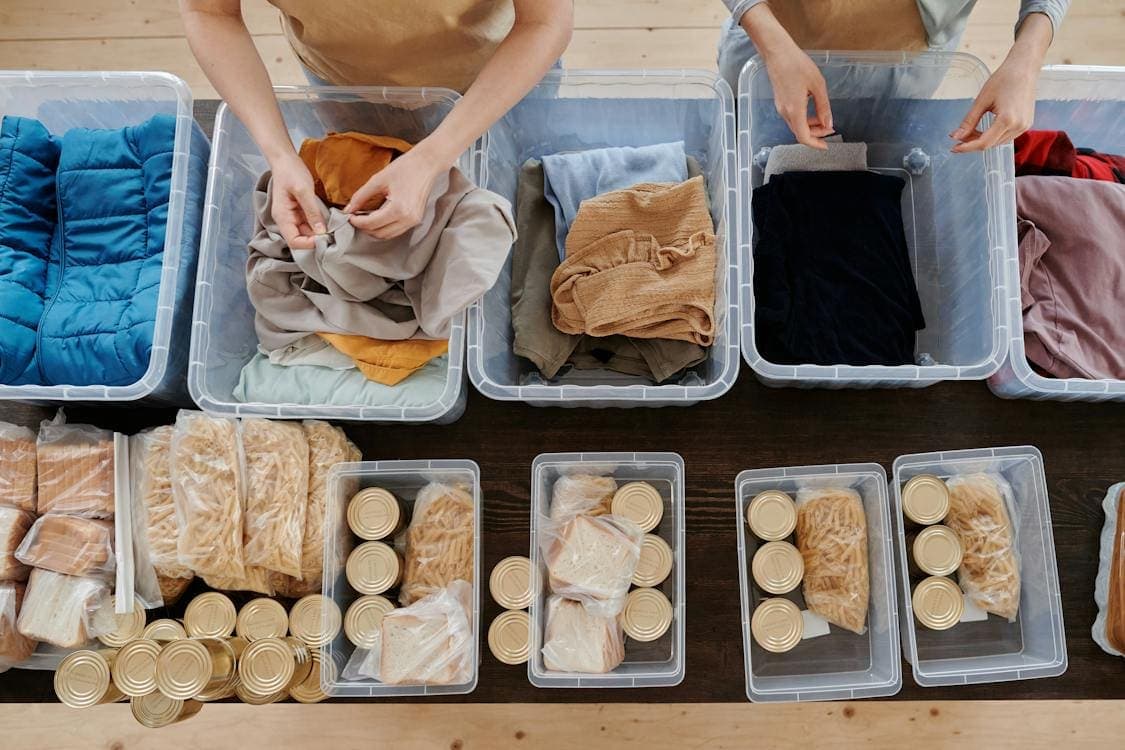
As I approach graduation, I am blessed to say that I have made many friends in college that will last me a lifetime. But when I started college, I was the same as you – in a new city and state where I didn’t know a single person. Freshmen year and college in general can feel so daunting for this reason, but you’re not alone! Almost everyone makes new friends in college or has to reset their social life entirely. Think of it as an opportunity – one you can seize and make the most of to find a whole new set of fantastic friends.
If you’re beginning college or currently enrolled and looking to expand your social circle, use these tips for how to make friends in college to meet like-minded people, break the ice, and strike up lasting connections with new friends.

Freshman orientation usually occurs a few weeks before class begins and is a program designed to help new students transition smoothly from high school to college life. During freshman orientation, you and a group of other new students will get to explore the campus and familiarize yourself with important buildings like classrooms, libraries, and dining halls. This is the perfect opportunity to strike up conversations, share the awkwardness of getting lost on campus together, and swap jokes during icebreakers. These early connections can blossom into lasting friendships.
Most colleges have student centers or resource centers dedicated to helping you thrive in all aspects of college life – including personal relationships. For example, my undergraduate college has a peer mentorship program and virtual hangout sessions to help students connect with each other. The LGBTQ+ Resource Center on our campus was also a great place for making friends, as it was open throughout the day, encouraging students to come in and converse on the couches or even watch a movie together.

Take your pick of clubs, attend their meetings, and strike up conversations with likeminded people. Most colleges run clubs dedicated to various interests not limited to sports, art, languages, board games, and music. They also tend to have organizations that cater to specific cultural demographics like UW-Milwaukee’s Asian Student Union and put on events that help link these students together.
If your school doesn’t currently have the kind of club or organization you’re looking for, see if there is a student involvement center or webpage run by your college that can provide information on how to launch and manage your own.
Greek organizations provide a strong sense of community. Upon joining a sorority or fraternity, you become part of a tight-knit group where friendship is not just encouraged but is a foundational aspect.The bonds formed within these organizations often extend beyond the college years, creating a lifelong network of friends who share common values and experiences.
Networking opportunities are another compelling reason to consider Greek life. Many sororities and fraternities boast extensive networks of alumni who have excelled in various fields. By becoming a part of these organizations, you gain access to a supportive network that can offer valuable advice, mentorship, and even career opportunities.

Before I left home for my first year of college, I was gifted the book Never Eat Alone by Keith Ferrazzi. While this book is mainly about networking for career success, I took its titular piece of advice to heart and decided to use this method to quickly gain friends in college. During lunchtime, I would often find new groups of people to chat with by simply approaching tables seated by people my age and asking if I could sit with them.
When introducing myself to these new people, I was honest about my situation and simply told people that I was new in town and didn’t have anyone to eat with. While it can be nerve-wracking to just introduce yourself to strangers like this, I quickly found out that most were very open to sharing a conversation and just as happy to make new friends of their own. 10 years later, and I’m still friends with a handful of them!
If you can, stay in the dorms for your freshman year and make use of the common facilities. Common areas like lounges, recreation areas, and kitchens allow for plenty of casual social interactions. What’s more, many dorms have Resident Assistants (RAs) who organize social events like game nights, movie nights, or potlucks.

Need a study buddy for that tough biology exam or a conversation partner to practice your foreign language skills? Partner up with someone in your class! Look around the room and strike up a conversation with someone who seems engaged in the material. Maybe it’s the person who always asks insightful questions in class, or someone who sits near you and seems friendly. Studying together can not only boost your grades but also create a bond through shared goal-setting. You can motivate each other to stay on track, celebrate victories together, and provide support during challenging times.
I have used Meetup.com and Bumble BFF to make friends in college, while traveling abroad, and when moving to a new city. Both platforms make it unbelievably easy to meet new people and find genuine connections.
Meetup.com is filled with niche community organizations and events centered around specific hobbies, professions, and activities. From cycling to crafting to career networking, Meetup.com allows you to find groups of people who share your same interests. Membership in most groups is free, allowing users to participate in discussions and RSVP for meetups, workshops, classes, or other gatherings related to the group’s theme.
Bumble began as a dating app but, in 2016, the BFF function was added to help users find platonic connections as well. To use the app, you’ll first publish some photos and a profile that briefly describes your personality. Then you’ll be able to swipe through other users’ profiles, match with them, and start a conversation.

Meet people who care about the same causes you do and dedicate your time to the greater good by volunteering on an ongoing or occasional basis.Whether you are passionate about animals, the environment, politics, or something else entirely, you don’t always need to commit to weekly hours as many organizations have opportunities to get involved for even just a day. For example, community clean-ups are a great way to meet your neighbors while contributing to a good cause.
The key tip to making friends at any stage in life is to be open and friendly. Friendships often start with casual interactions, so be open to small talk with those you see throughout your day. If you give off positive energy, people are more likely to open up to you. So smile, strike up conversations, and show genuine interest in getting to know others, and you’ll be able to make new friends no matter where you are.

We’ve tracked down the acceptance rates of some of the easiest colleges to apply for in the country, so you don’t have to. With special sections for CA, FL, TX, and NY. Read on to find out more.

Do you have a 3.5 GPA? Are you curious about which schools you have a good chance of getting into with a 3.5 GPA? There are numerous options from prestigious institutions to high-ranked liberal arts colleges. The opportunities are endless and in this blog, we will explore these colleges and universities, explore strategies on how …

If you’ve always been fascinated by the mysteries of the ocean and dream of exploring marine ecosystems, a career in marine biology might be perfect for you. Studying marine biology offers the unique opportunity to observe animal behaviors, understand the health of our oceans, and explore the connections between humans and marine life. Graduates can …